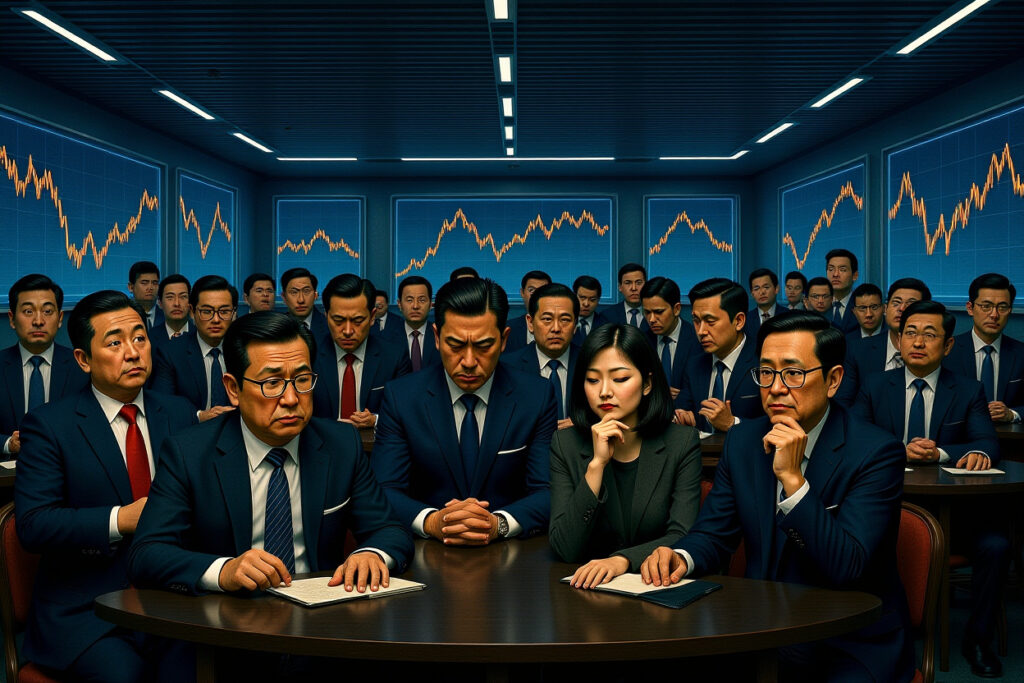Berkshire Hathaway Completes BYD Divestment After 17 Years
The investment world received seismic news on September 21, 2025, as market sources confirmed Warren Buffett’s Berkshire Hathaway (伯克希尔・哈撒韦公司) has completely exited its position in BYD Company Limited (比亚迪股份), China’s pioneering electric vehicle manufacturer. This move concludes a 17-year investment relationship that generated approximately 3,890% returns for the Omaha-based conglomerate.
The initial investment, made in September 2008 during the global financial crisis, saw Berkshire acquire 225 million BYD shares at HK$8 per share, totaling HK$1.8 billion. At the time, this represented approximately 10% of BYD’s outstanding shares and signaled strong confidence in China’s emerging electric vehicle sector.
Historical Investment Context
Berkshire’s initial $230 million investment in BYD occurred when electric vehicles represented a nascent technology and China’s automotive industry was dominated by traditional manufacturers. The investment came through MidAmerican Energy Holdings (now Berkshire Hathaway Energy), with Charlie Munger personally championing BYD founder Wang Chuanfu (王传福) as a visionary leader.
– Initial investment: September 2008, 225 million shares at HK$8 per share
– Total investment value: HK$1.8 billion (approximately $230 million at 2008 exchange rates)
– Peak valuation: Position reached nearly $9 billion during BYD’s 2022 market peak
– Holding period: 17 years from initial purchase to complete divestment
Divestment Timeline and Strategic Implications
Berkshire Hathaway began reducing its BYD stake in August 2022, initiating a series of transactions that culminated in the complete exit reported this week. The divestment process occurred during a period of exceptional volatility in global electric vehicle stocks and shifting regulatory landscapes in both China and key international markets.
The Warren Buffett completely exits BYD position strategy reflects broader reassessment of China exposure among international investors amid evolving geopolitical considerations and sector-specific challenges. While Berkshire maintained its position through multiple market cycles, the complete exit suggests fundamental reassessment of the risk-reward equation for Chinese electric vehicle manufacturers.
Market Reaction and Trading Patterns
BYD’s stock experienced significant volatility throughout Berkshire’s divestment period. The initial reduction announcement in 2022 triggered a 12% single-day decline, while subsequent filings showing continued selling created ongoing pressure on the stock despite strong fundamental performance.
– August 2022: First disclosure of reduction caused 12% decline
– 2023-2024: Regular filing updates showed progressive position reduction
– September 2025: Final complete exit confirmed through market sources
Trading volume patterns indicated institutional repositioning throughout the divestment period, with increased volatility around Berkshire’s regulatory filings. The complete exit removes a significant overhang that had weighed on the stock for nearly three years.
Financial Performance and Return Analysis
Berkshire Hathaway’s BYD investment represents one of the most successful international investments in Chinese equities, generating approximately 3,890% returns over the holding period. This performance significantly outpaced major indices and comparable automotive sector investments during the same timeframe.
The investment demonstrated remarkable timing, entering during the global financial crisis trough and exiting after China’s electric vehicle sector maturation. The Warren Buffett completely exits BYD position move comes as BYD faces increased competition and margin pressure despite maintaining leadership in several key markets.
Comparative Investment Performance
When compared to other major automotive investments, Berkshire’s BYD position outperformed significantly:
– BYD: 3,890% return over 17 years
– Tesla: Approximately 1,200% over same period (from 2008)
– Traditional automakers: Mostly negative returns excluding dividends
– S&P 500: Approximately 380% total return including dividends
The exceptional returns highlight both the success of China’s electric vehicle adoption and Berkshire’s ability to identify transformative trends early. However, the complete exit suggests belief that the growth phase has largely concluded.
Sector Impact and Broader Market Implications
The Warren Buffett completely exits BYD position development carries significant implications for China’s electric vehicle sector and international investor sentiment. As one of the most visible foreign investments in Chinese new energy vehicles, Berkshire’s exit may influence other institutional investors’ allocation decisions.
Chinese electric vehicle manufacturers face mounting challenges including domestic price competition, international trade barriers, and shifting subsidy environments. The sector’s valuation multiples have compressed significantly from 2021 peaks, reflecting both cyclical pressures and structural concerns.
Regulatory and Geopolitical Context
Berkshire’s exit occurs against a complex backdrop of evolving US-China investment regulations and increasing scrutiny of foreign investment in sensitive technology sectors. While no direct regulatory pressure has been confirmed, the decision aligns with broader trends of international investors reassessing Chinese technology exposures.
The Chinese government’s continued support for electric vehicle adoption through policies like the New Energy Vehicle (新能源汽车) development plan provides fundamental support, but international expansion faces increasing headwinds including European Union anti-subsidy investigations and US tariff policies.
Investment Strategy Analysis and Forward Outlook
Warren Buffett and Charlie Munger historically emphasized long-term holding periods for quality companies, making the complete exit from BYD particularly notable. The decision likely reflects combination of valuation considerations, sector dynamics, and broader portfolio strategy rather than specific concerns about BYD’s management or execution.
The Warren Buffett completely exits BYD position move may signal belief that the company’s growth phase has matured and future returns may not justify maintaining the position given alternative opportunities. Berkshire’s recent investments in traditional energy sectors and Japanese trading companies suggest strategic pivot toward different risk-return profiles.
Sector Valuation Assessment
Current electric vehicle manufacturer valuations reflect bifurcated market sentiment:
– Market leaders: Trading at 15-25x forward earnings despite growth rates exceeding 30%
– Emerging competitors: Many trading below book value amid funding challenges
– Supplier ecosystem: Valuation multiples compressed across battery manufacturers and component suppliers
The valuation environment suggests market anticipation of consolidation and margin pressure despite continued unit growth. International investors increasingly differentiate between domestic Chinese champions and globally competitive manufacturers.
Strategic Considerations for International Investors
The Warren Buffett completely exits BYD position development requires careful interpretation rather than automatic emulation. While Berkshire’s decision carries significant symbolic weight, investors must assess their own investment horizons, risk tolerance, and portfolio objectives when evaluating Chinese electric vehicle exposure.
BYD maintains strong competitive positioning including vertical integration, technology leadership, and scale advantages. The company continues to gain market share domestically and has made meaningful progress in international markets despite geopolitical headwinds.
Portfolio Implementation Strategies
Investors considering position adjustments might consider:
– Gradual rebalancing rather than immediate full exit
– Active monitoring of regulatory developments affecting market access
– Diversification across automotive value chain rather than concentrated OEM exposure
– Consideration of hybrid exposure through suppliers with customer diversification
The complete divestment by a legendary investor warrants attention but not necessarily replication. Each investor must assess their own conviction level regarding China’s electric vehicle adoption trajectory and BYD’s competitive positioning.
Market Outlook and Investment Implications
The Warren Buffett completely exits BYD position move represents a significant milestone in China’s electric vehicle investment narrative rather than a definitive sector condemnation. Market participants should interpret this development within broader context of portfolio management, valuation considerations, and alternative opportunity assessment.
BYD and China’s electric vehicle sector face challenges but also maintain substantial growth runways domestically and internationally. The investment case remains fundamentally intact though requiring more selective analysis and active position management.
Investors should monitor several key developments including quarterly earnings momentum, international expansion progress, technology innovation announcements, and regulatory policy updates. The sector’s volatility requires disciplined position sizing and ongoing fundamental reassessment.
For sophisticated investors, current market conditions may present selective opportunities despite Berkshire’s exit. The key differentiator will remain identifying companies with sustainable competitive advantages, strong balance sheets, and management teams capable of navigating evolving market conditions.
Monitor upcoming earnings releases and management commentary for updated guidance on competitive positioning and margin outlook. Consider consulting with sector specialists before making significant allocation changes based on this development.




